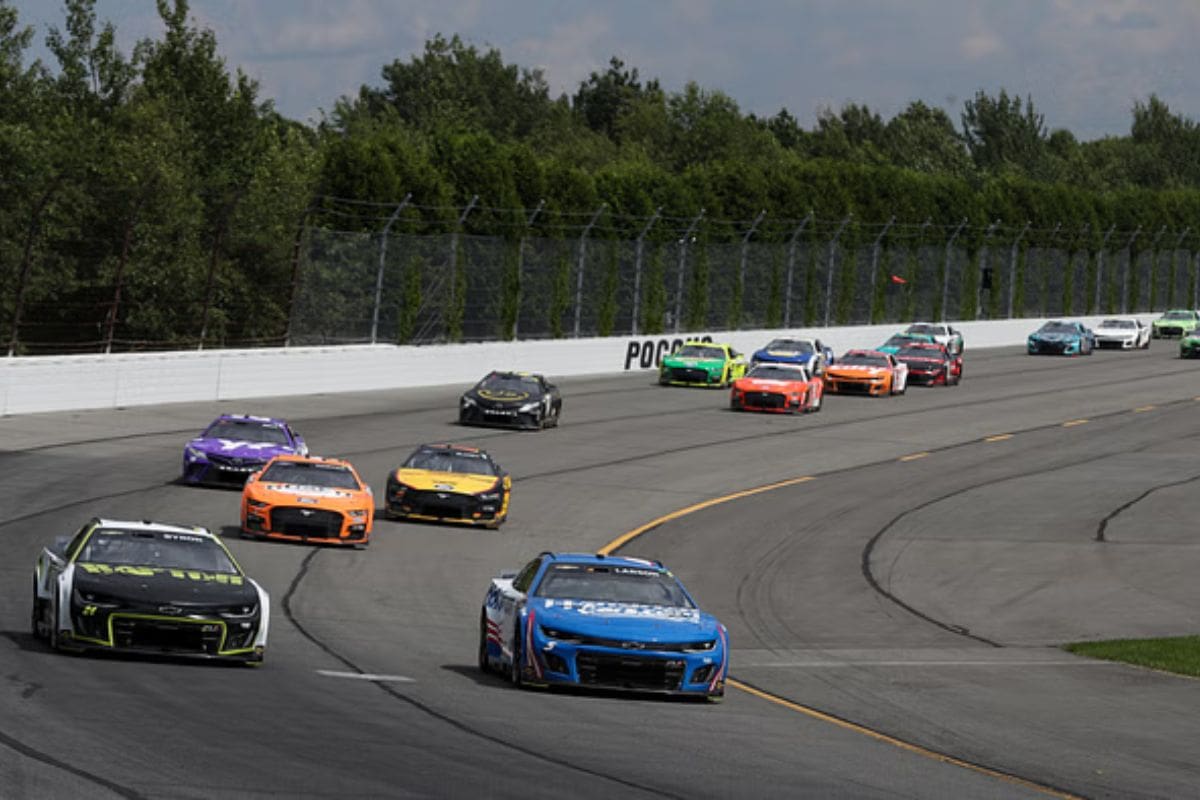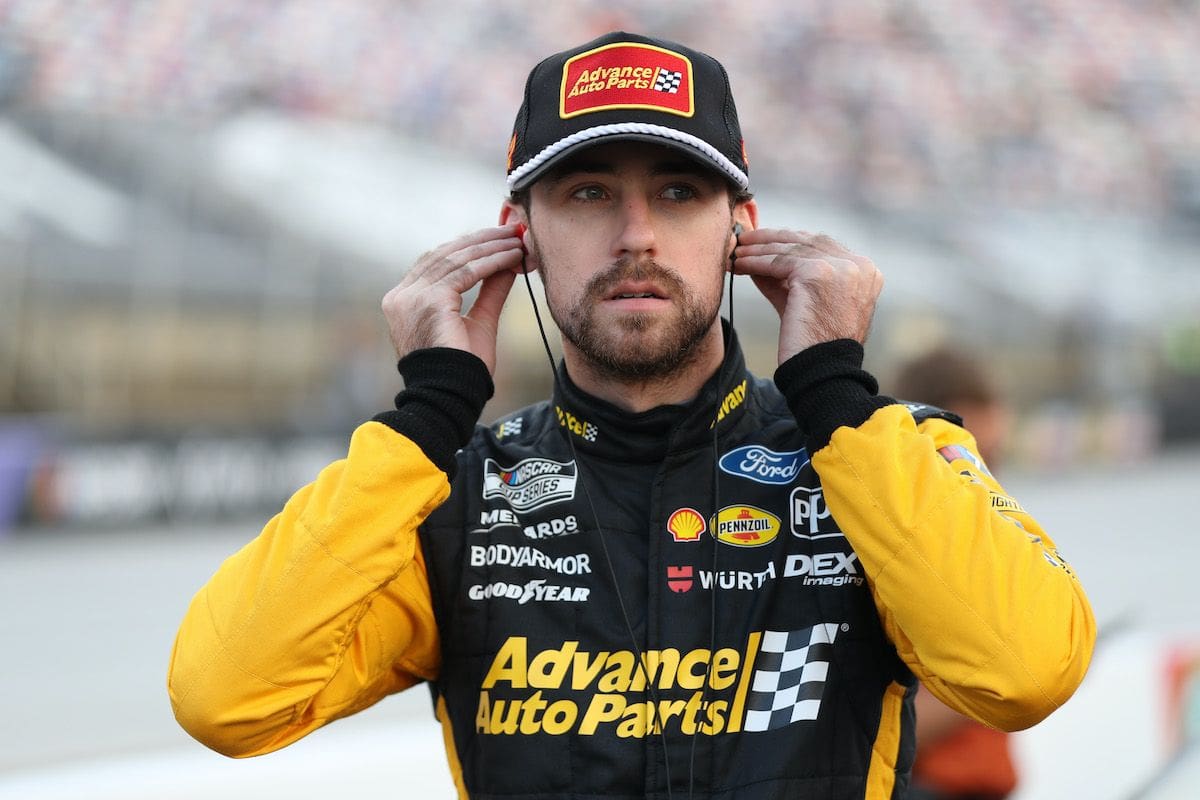Chevrolet’s Downfall Following Ford: As the NASCAR season progresses, an insider’s warning about Chevrolet‘s path warrants serious attention; mirroring Ford’s earlier struggles, Chevrolet faces a worrying decline in dominance and performance consistency. The reliance on powerhouse teams like Hendrick Motorsports emphasizes deeper systemic issues within Chevrolet’s racing program. Meanwhile, Ford‘s resurgence raises questions about Chevrolet’s ability to close performance gaps and re-strategize effectively. With drivers like Ryan Blaney highlighting Ford’s success, the urgent need for Chevrolet to unify its teams and address these challenges becomes more pressing. How Chevrolet responds could define not just their season, but their future in NASCAR.
Key Highlights
- Chevrolet’s early season dominance has significantly waned, raising concerns about their racing program’s consistency.
- Non-Hendrick Chevrolet teams’ struggles highlight systemic issues within Chevrolet’s racing strategy.
- Dependency on Hendrick Motorsports has exposed vulnerabilities in Chevrolet’s broader competitive framework.
- Ford’s resurgence and technological advancements could further pressure Chevrolet to address performance gaps.
- Chevrolet must realign strategically to avoid the pitfalls Ford previously encountered with performance inconsistency.
Early Season Performance Overview
At the onset of the 2024 NASCAR Cup Series season, Chevrolet’s Camaro ZL1 dominated the early races, showing a clear contrast to Ford’s initial struggles and Toyota’s lone victory. Chevrolet’s decision to retain the Camaro ZL1, while Ford introduced the Dark Horse Mustang and Toyota rolled out the Camry XSE, proved advantageous in the initial phase.
The Camaro ZL1 consistently led the pack, securing multiple victories and establishing a strong presence on the leaderboard. This early dominance highlighted Chevrolet’s smart foresight in maintaining a proven model, while their competitors grappled with the initial issues of new designs.
In contrast, Ford’s Dark Horse Mustang faced notable challenges. Despite high expectations, the new Mustang struggled with performance consistency and operational reliability. Ford’s teams were often seen grappling with mechanical setbacks and suboptimal aerodynamics, which hindered their ability to compete effectively. This underperformance was particularly obvious given the substantial hype surrounding the Dark Horse Mustang’s debut.
Toyota, while not as troubled as Ford, also faced an uphill battle. Christopher Bell’s lone victory at Phoenix Raceway offered a ray of hope, but the Camry XSE generally lagged behind the dominant Camaros. Toyota’s focus on incremental improvements showed potential, yet it was clear that substantial work was needed to match Chevrolet’s early season mastery.
Thus, the early part of the 2024 NASCAR Cup Series saw Chevrolet firmly in control, leveraging their tried-and-tested Camaro ZL1 to excellent effect. Ford and Toyota, meanwhile, were left to reassess their approaches and address the performance gaps that hindered their competitive edge.
Decline of Chevrolet’s Dominance
However, as the season progressed, Chevrolet’s early dominance began to wane, revealing vulnerabilities reminiscent of Ford’s initial struggles. Despite a strong start, Chevrolet’s performance outside the Hendrick Motorsports camp has been tepid at best, with other Chevrolet teams like Trackhouse, Spire, Richard Childress Racing, and Kaulig failing to make notable progress. This decline has raised concerns about the depth and consistency of Chevrolet’s racing program.
Michael McCarthy, co-host of Rubbin’ Is Racing, emphasized this issue, noting that Chevrolet’s success has been disproportionately reliant on Rick Hendrick’s garage. McCarthy stated, “As much as Ford has been on the come…Ford looks very good. Chevy is not owned by Hendrick Motorsports, has not looked good – Trackhouse, Spire, RCR, and Kaulig. Outside of Hendrick this week, the best Chevy was a P-16. And only Suarez is a non-HMS Chevy that has a win in 2024.” This dependency on a single team highlights a broader systemic issue within Chevrolet’s NASCAR strategy.
While Hendrick Motorsports continues to perform, the rest of the Chevrolet teams have struggled, with Daniel Suarez being the only non-HMS Chevrolet driver to secure a win in 2024. Despite Alex Bowman’s victory in Chicago, which kept Chevrolet’s streak alive, the overall trend suggests a concerning decline in their competitive edge. The fact that the best non-Hendrick Chevrolet finish was a P-16 highlights the noticeable performance gap.
McCarthy’s frank assessment, “Chevys are in trouble,” encapsulates the current state of Chevrolet’s NASCAR efforts. If Chevrolet is to avoid Ford’s path of inconsistency and underperformance, a thorough reassessment of their approach is imperative. Only a united effort across all Chevrolet teams can restore their once formidable dominance in the Cup Series.
Shift in OEM Performance
The shift in OEM performance has become increasingly evident as Ford’s resurgence contrasts sharply with Chevrolet’s recent struggles. Once considered the benchmark of NASCAR success, Chevrolet now finds itself grappling with a series of setbacks while Ford capitalizes on newfound momentum.
Chevrolet’s predicament can be encapsulated by several key factors. To start, Richard Childress Racing’s Kyle Busch, a driver with 63 Cup wins, is enduring his longest winless streak, having gone 41 races without a victory. This slump is a notable departure from his usual performance and reflects broader issues within the Chevrolet camp. Additionally, Trackhouse Racing’s Ross Chastain, once a guiding light of promise, has faced a string of upsets that have dashed his victory prospects.
“We spoke about at the beginning of the season how much trouble the Fords were in, even though they had swept the championship in 2023. But now Fords have been on a tear – particularly Penske. Since Joey’s All-Star win, Blaney has his second win now in five races.” – Barstool
Furthermore, the disparity between Chevrolet’s top performers and the rest of the field has become evident. As noted by Barstool, “Chevy is a very top-heavy manufacturer right now, particularly in the Cup Series.” This observation highlights a troubling gap in consistency and depth within Chevrolet’s lineup.
“So it seems like things have flip-flopped. I know that Hendrick is the cream of the crop and all that kind of s**t. But outside of that…Chevy is a very top-heavy manufacturer right now, particularly in the Cup Series.” – Barstool
To summarize Chevrolet’s current challenges:
- Kyle Busch’s Slump: The veteran driver is experiencing his longest winless streak, indicating deeper performance issues.
- Ross Chastain’s Struggles: A series of recent upsets have hampered the promising driver’s chances of clinching victories.
- Top-Heavy Performance: Chevrolet’s success is overly reliant on a few top-tier teams, lacking the depth seen in more balanced manufacturers.
- Comparative Resurgence of Ford: As Ford gains momentum, the pressure mounts on Chevrolet to reevaluate and address its performance gaps.
Ford’s Recent Success
Amid Chevrolet’s struggles, Ford has seized the opportunity to rise, exemplified by Brad Keselowski’s breakthrough win at Darlington Raceway and Ryan Blaney’s recent hot streak. This resurgence is emblematic of Ford’s tactical skill and resilience in the competitive landscape of NASCAR.
Keselowski’s victory at Darlington was not simply a triumph but a statement, signaling Ford’s intention to dominate the circuits. This win has acted as a catalyst, inspiring other Ford drivers to enhance their performance levels.
Ryan Blaney’s performance has been particularly remarkable. Despite a rocky start to the 2024 season, marked by a series of unfortunate wrecks starting with the Daytona 500, Blaney’s determination has been steadfast.
His struggles with fuel issues at Gateway could have bother a lesser driver, but Blaney responded with an impressive display of determination and skill. His consecutive victories at Iowa and Pocono have showed his ability to rebound and dominate, reinforcing Ford’s position at the forefront of NASCAR.
Blaney’s ability to stack wins in less than five races showcases not just individual talent but also the strong support system and technological innovation that Ford provides its teams. This streak has injected a renewed sense of confidence within the Ford camp, positioning them as formidable contenders for future races.
In the context of OEM performance, Ford’s recent success highlights a strategic recalibration and execution that other manufacturers, particularly Chevrolet, must closely examine.
As Ford continues to build on these victories, the competitive dynamics of NASCAR are set to shift, with Ford clearly signaling its intent to remain a dominant force on the track.
Blaney’s Perspective and Future Outlook
Ryan Blaney’s recent statements mirror a profound sense of hope and belief in the progress made by Team Penske. Following a series of strong showings in the latter part of the season, Blaney has every reason to be optimistic about his team’s direction. “Yeah, I mean, I feel like the last two months we’ve been spectacular,” he remarked, highlighting the noteworthy gains in speed and performance that have boosted his confidence.
“Speed in our cars has been great. A couple finishes might not reflect that. It’s really none of our doing. Gateway we had a great shot to win, didn’t really work out. New Hampshire, had a great run, got spun out. I am really feeling good about the speed in our cars right now across the board at Team Penske. I feel like we’ve found a lot of stuff.” – Blaney
Despite some disappointing results, Blaney remains undaunted. He pointed out notable occasions where Team Penske exhibited their skills:
- Gateway Performance: Blaney noted they had a strong opportunity to secure victory, emphasizing their competitive advantage even in challenging circumstances.
- New Hampshire Incident: Despite being spun out, the team demonstrated their ability to compete at the front, showing resilience and potential.
- Pocono Race: His enthusiasm post-race emphasized the concrete improvements in car speed and handling, indicating a promising future.
- Team-Wide Enhancements: Blaney stressed that the speed improvements were not isolated but a team-wide occurrence, strengthening Team Penske’s overall competitiveness.
Blaney’s perspective is not only about personal success but also about motivating his Ford colleagues to secure more wins this NASCAR season. His confidence in Team Penske’s technological advancements serves as a guiding light for the Ford camp, potentially signaling a change in the competitive landscape.
As Chevrolet faces increasing pressure, Blaney’s observations provide a peek into a future where Ford teams, empowered by newfound speed and tactical gains, could dominate the championship races. The unfolding season promises to be an exciting competition of engineering skills and tactical intelligence, with Blaney and Team Penske leading the way.
News in Brief: Chevrolet’s Downfall Following Ford
Chevrolet’s current path in NASCAR mirrors the earlier struggles faced by Ford, underscoring noteworthy performance inconsistencies and an over-reliance on select teams such as Hendrick Motorsports.
To combat Ford’s recent surge in success and address these systemic issues, a tactical realignment and improved collaboration among all Chevrolet teams are imperative.
Failure to implement these changes risks further decline in competitive standing, necessitating immediate and cohesive action to restore Chevrolet’s prominence in the sport.
ALSO READ: NASCAR Lay-Offs Loom as Major Reshuffling Hits the Sport



